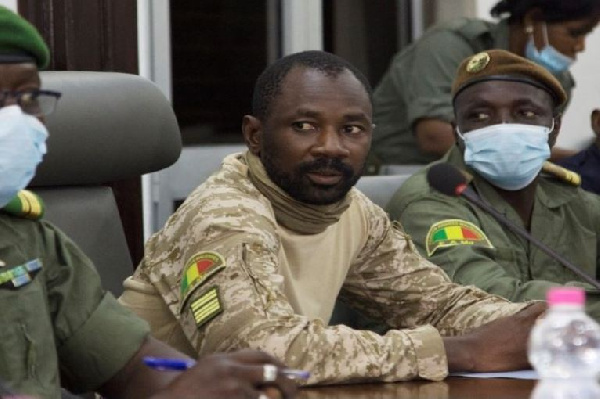![Members of the Malian military government [File: Annie Risemberg/AFP]](https://cdn.ghanaweb.com/imagelib/pics/920/92049739.jpg)
Members of the Malian military government
BAMAKO, May 9 (NNN-AGENCIES) — Mali’s ruling government has announced that a long-awaited referendum on a new constitution would be held in the West African nation on June 18.
The referendum is a major milestone on the road to elections promised for February 2024, after a coup in May 2021.
Government spokesperson Colonel Abdoulaye Maiga read out a decree on state television saying the country was called upon “to decide on the Constitution project” in June, after missing a previous deadline of March 19.
“Voters will have to respond by a ‘yes’ or a ‘no’ to the following question,” on the referendum, the spokesperson said. “Do you approve of the draft constitution?”
Members of the security forces in the nation will vote early on June 11.
The delay in March had been expected since nearly no arrangements had been made for the vote and the draft constitution was only handed over to interim president and coup leader Assimi Goita on Feb 27.
The Economic Community of West African States lifted a set of trade and financial sanctions against Mali in July after the military government committed to a March 2024 handover.
The sanctions were imposed in January 2022 when the military government was considering remaining in power for up to five years.
The draft constitution significantly strengthens the power of the president. Under it, the president rather than the government appoints the prime minister and ministers and has the right to sack them as well as dissolve parliament.
Other sections of the draft have already triggered controversy.
A part of the draft states that Mali is an “independent, sovereign, unitary, indivisible, democratic, secular and social republic”. Imams, a powerful class in the country, have been contesting the principle of secularism and have called on Muslims to oppose it.
The draft also proclaims any coup as an “imprescriptible crime”. But those who carried out the 2020 coup and another one in 2021 to consolidate their hold on power would be safe since acts prior to the constitution going into effect would be covered by amnesty laws.
Mali is in the throes of an 11-year-old security crisis triggered by a regional revolt in the north that developed into a full-blown rebellion. Frustration that French troops, who had been in the country since 2013, could not root out the rebels led to rising anti-French sentiments.
That and military rule in the country led to soured relations with France, the country’s traditional ally and former coloniser, and closer ties with Russia. — NNN-AGENCIES






